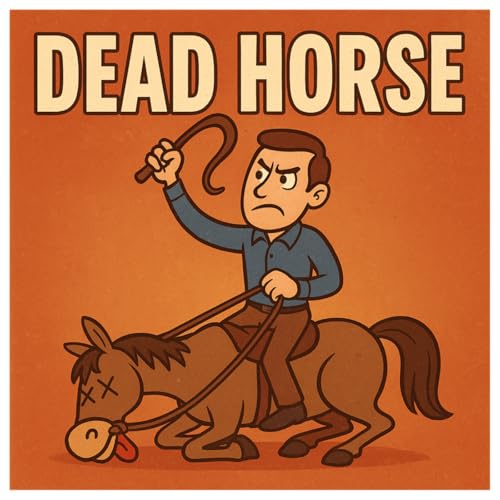
The Dead Horse Theory — Knowing When to Let Go
Failed to add items
Add to basket failed.
Add to Wish List failed.
Remove from Wish List failed.
Follow podcast failed
Unfollow podcast failed
-
Narrated by:
-
By:
About this listen
In this powerful and emotionally charged episode, we dive deep into the Dead Horse Theory — a metaphor for one of life’s hardest lessons: knowing when to stop forcing what no longer serves you.
From relationships that drain your energy to business ventures that have lost their spark, we explore why we cling to things long past their expiration date. Through vivid metaphors, psychological insights, and thought experiments, you’ll discover how letting go isn’t a sign of weakness — it’s a mark of self-awareness, courage, and evolution.
You’ll walk through moments of truth: the burning rope you refuse to drop, the garden full of withered plants stealing life from the new, the snake suffocating under old skin. We challenge you to look honestly at what in your life has flatlined — and to finally find the freedom that comes from release.
Because sometimes, the only way to move forward is to stop riding the dead horse.
💡 In This Episode, You’ll Learn:
- Why people cling to failing relationships, goals, and projects.
- How the sunk cost fallacy keeps you trapped in stagnation.
- The difference between persistence and denial.
- How to spot what’s truly dead — and what’s just dormant.
- The emotional and psychological freedom that comes with letting go.
🧠 Key Quote:
“Letting go isn’t giving up — it’s giving yourself permission to grow.”
🔥 Useful Links:
📘 Become a Person of Value by J.S. Math
📗 A Question a Day Journal
📕 Daily Quotes of Wisdom
🌍 Transformational Coaching & Courses – The Vancrux Label
🧢 The Vancrux Clothing Brand – Wear the Mentality
📸 Follow on Instagram: @the_vancrux_label



